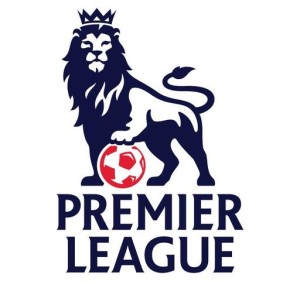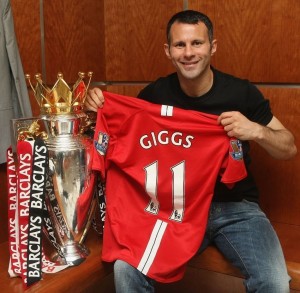Betting on the English Premier League
 The English Premier League is the United Kingdom’s top football league and probably the best known and most widely followed league around the world, with famous and storied clubs like Manchester United and Liverpool having turned into global brands over the last 20 years.
The English Premier League is the United Kingdom’s top football league and probably the best known and most widely followed league around the world, with famous and storied clubs like Manchester United and Liverpool having turned into global brands over the last 20 years.
Live Premier League games and highlights are available in a host of countries around the world and it is perhaps the most attractive league for the world’s top players, and one that most up-and-coming players aspire to play in.
Arguably, the Premier League is one of the worst things to bet on in terms of value. Because it’s so popular with the betting public the book makers work extremely hard on pricing the matches up correctly, so they don’t end up losing out to sharp bettors. For non-US customers, BetVictor almost always has the best odds on most EPL markets. For Americans, we’ve found that Bovada is your best bet.
Check out our latest EPL betting tips article here:
If you own a Revolut card as a fast-growing number of people do, you’ll likely love it and use it an awful lot on your travels. So, what happens when...Revolut and Bet365 – Does The Card Work?
Formation of the EPL
The Premier League came into being at the beginning of the 1992-1993 season as a breakaway league from the long established four division football system and would have commercial independence from the Football League. The ability of the new top flight league to negotiate independently from the Football League with broadcasters and sponsors led to a re-birth in popularity and investment in football in England. The first Premier League consisted of the 22 teams that would have contested the First Division under the old system.
The League teamed up with the relatively new pay-TV broadcaster BSkyB, typically referred to as ‘Sky’ which meant that football fans would now have to pay a monthly subscription to watch live games. Although there was much resistance to the move to pay TV initially, Sky’s professional coverage and heavy marketing eventually led to acceptance of the new format among fans.
In its 20 years of existence the Premier League has revolutionised football in the UK and brought a huge amount of money into the game which the Football Association have been able to use to develop the game at underage level and as such, the move has been hailed as a success by most.
Premier League Format
Until 1995, the Premier League had 22 teams, but in a move to reduce the number of games in the season, this was reduced to 20. The season begins in mid-August and runs until early-May with no mid-season break, though there are occasional off-weeks when there is a full slate of International matches, and for weekends over which the FA Cup is played out. Each team plays every other team both at their home ground and away from home, leading to a total of 38 games per club over the course of the season.
Teams are awarded 3 points for a win, 1 for a draw and 0 for a loss. At the end of the season, if two teams are tied on points then the team with the better goal difference (goals scored – goals allowed) is deemed to have finished ahead. Should goal difference be equal, then total goals scored becomes the tie-breaker.
The traditional match day in the UK is Saturday, though since the start of Sky’s extensive coverage, some matches are now played on Sunday afternoon and Monday night, with occasional mid-week matches throughout the season.
At the season’s end, the three teams with the worst points record are relegated to the Championship (the second highest league in the UK) with the two best teams from the Championship, as well as the winner of a playoff between teams placed from 3rd to 6th being promoted to the Premier League for the following season.
At the top of the table, each of the top 3 teams qualifies directly for the group stages of the Champions League, while the fourth place teams enters into the playoff round, where a victory in a two-legged match against an opponent from another league in Europe will see them qualify for the group stages. Even if one team sews up the title long before the end of the season, the competition for the Champions League spots is always intense and ensures an exciting and dramatic finish to the season, such is the value both financial and in terms of prestige of a Champions League place.
History of the Premier League
 Since its inception in 1992, Manchester United have dominated the Premier League, winning 13 of the 20 titles which have been awarded to date. Before the Premier League began, United hadn’t won a title since 1967. Manager Alex Ferguson who joined in 1986 is widely credited with turning the club around and helping them to become arguably the biggest football club in the world. Ferguson was the only manager who has been in place since the Premier League began, until he was replaced by David Moyes for the 2013/2014 season.
Since its inception in 1992, Manchester United have dominated the Premier League, winning 13 of the 20 titles which have been awarded to date. Before the Premier League began, United hadn’t won a title since 1967. Manager Alex Ferguson who joined in 1986 is widely credited with turning the club around and helping them to become arguably the biggest football club in the world. Ferguson was the only manager who has been in place since the Premier League began, until he was replaced by David Moyes for the 2013/2014 season.
Aside from United, only three other teams have won Premier League titles: Chelsea and Arsenal have won three, with Blackburn Rovers earning their only victory in 1995. Liverpool, who dominated English football in the 1970s and 80s have struggled in the Premier League era, with their best finish coming in 2009 where they finished 4 points before Manchester United. Typically the title race is contested between Man. United, Chelsea, Arsenal and Liverpool with second tier teams fighting for a Champions League place.
Sponsorship and Media Coverage
As the world’s most popular domestic football competition, the Premier League attracts a huge amount of sponsorship and media interest. The current sponsor of the league is Barclay’s who have held the sponsorship since 2001. Shirt sponsorship is also big business with the combined logo deals for Premier League teams adding up to £117.5m for the 2011/2012 season.
TV coverage also generates huge revenues for the League. The latest four year deal negotiated between the Premier League and UK and Ireland broadcasters Sky and BT Sport to show live games totals almost £1.8 billion, with BBC retaining the rights to broadcast highlights on Saturday and Sunday nights on the ‘Match of the Day’ program, an institution in British television. Foreign TV rights to show live games around the world netted a total £625m over the same period. The money from the TV deals is split equally among all 20 Premier League clubs.
Facts and Figures from the Premier League
-Ryan Giggs (Man. United) is the only player to have played in every Premier League Season (until he retired in 2014).
-Alan Shearer has the record for career goals scored, with 260.
– Shearer shares the single season record of 34 goals with Andy Cole.
– The quickest goal was by Ledley King of Tottenham Hotspur, after 9.9 seconds.
– Arsenal won the 2004 Premier League title without losing a game.
– The highest margin of victory was when Manchester Utd. beat Ipswich town 9-0 in 1995.
-The record transfer fee is £59.7m, paid by Manchester United to Real Madrid for Angel di Maria in 2014.


